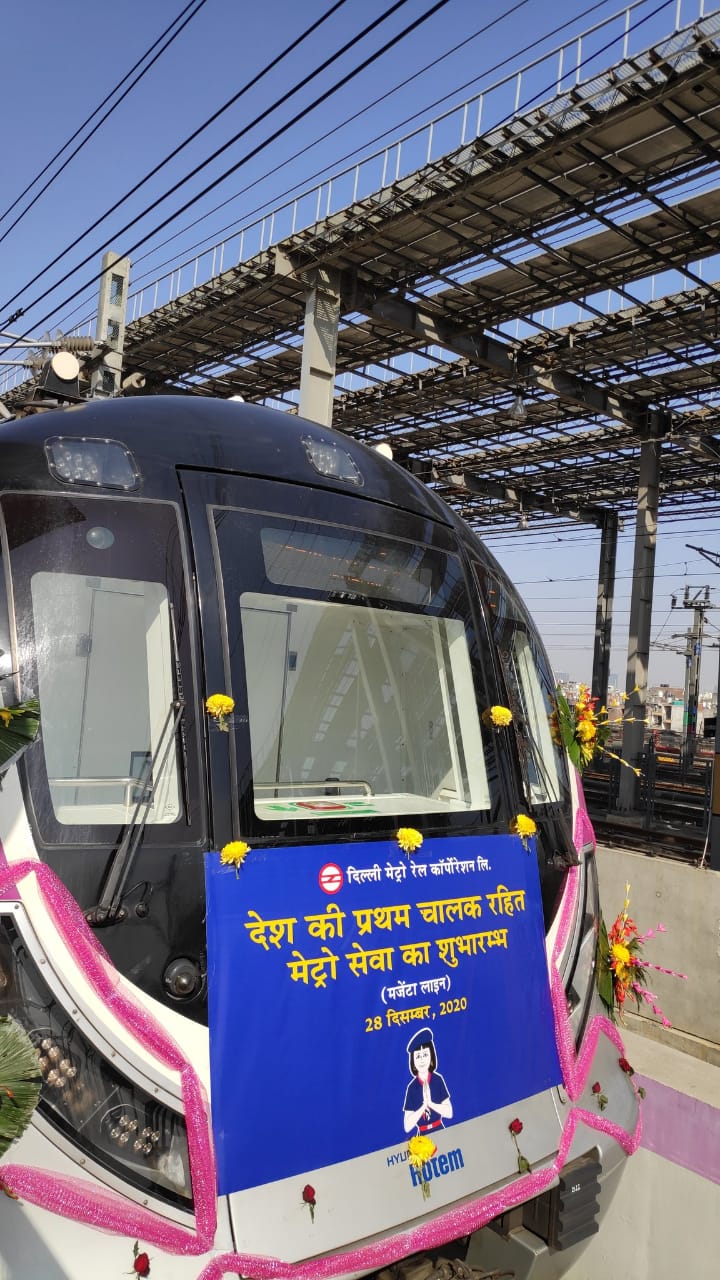PM Modi inaugurates India’s first-ever driverless train, says urbanization should be used as an opportunity to build better infrastructure
Author: BI Bureau

New Delhi: Prime Minister Narendra Modi, who on Monday inaugurated India’s first-ever driverless train operations on Delhi Metro’s Magenta Line, termed the event as an attempt to make urban development future ready. He said preparing the country for future needs is an important responsibility of governance.
He lamented the fact that a few decades ago, when the demand of urbanization was felt, there was not much attention given to the needs of the future, half-hearted work was done and confusion persisted. He said unlike this, modern thinking says that urbanization should not be seen as a challenge but used as an opportunity to build better infrastructure in the country, an opportunity through which we can enhance ease of living.
The Prime Minister said this difference of thinking is seen now in every dimension of urbanization. He added that in 2014, only five cities had metro rail and today, metro rail is available in 18 cities. By the year 2025, we are going to expand it to more than 25 cities. In 2014, only 248 km of metro lines were operational in the country and today it is about three times, more than 700 kilometers.
By the year 2025, we are trying to expand it to 1700 km. He stressed that these are not just figure, they are proof of ease of living in the lives of crores of Indians. These are not just infrastructures made of brick and stone, concrete and iron, but are evidence of the fulfillment of the aspirations of the citizens of the country, the middle class of the country, he said.
The Prime Minister remarked that the government formulated the metro policy for the first time and implemented it with an all-round strategy. Emphasis was on working according to local demand, promoting local standards, Make in India expansion and use of modern technology. He said it was noted that the expansion of the metro, modern modes of transport should be used according to the needs of the people of the city and the professional lifestyle there.
He further added that Metro Neo is being worked in cities where the ridership is less. It would be built at the cost of 25 per cent of the normal metro. Similarly, water metro would be an out of the box thinking. For cities where there are large water bodies, the water metro is now being worked on. This will provide last mile connectivity to the people near the islands.
The Prime Minister said with the achievement of Metro Rail without a driver, our country has joined the select countries of the world where such facilities are available. He said a braking system in which 50 percent of the energy goes back into the grid when the brakes are applied is being used.
With the commencement of the new-generation train, the DMRC has entered the elite league of seven per cent of the world's metro networks, which can operate services without drivers. After starting driverless services on the 37-km Magenta Line (Janakpuri West–Botanical Garden), another major corridor of the Delhi Metro, 57-km Pink Line (Majlis Park–Shiv Vihar) will also have driverless operations by mid-2021, the DMRC said in a statement.
“The driverless trains are fully automated which will require minimum human intervention and will eliminate the possibilities of human errors. The Delhi Metro has been a pioneer in introducing technology driven solutions for passenger comfort and this is another step in the same direction,” said the statement. Once the driverless trains are operationalized on the Pink Link too, the Delhi Metro will have a driverless network length of about 94 km which will be approximately nine per cent of the world’s total driverless metro network. /BI/



